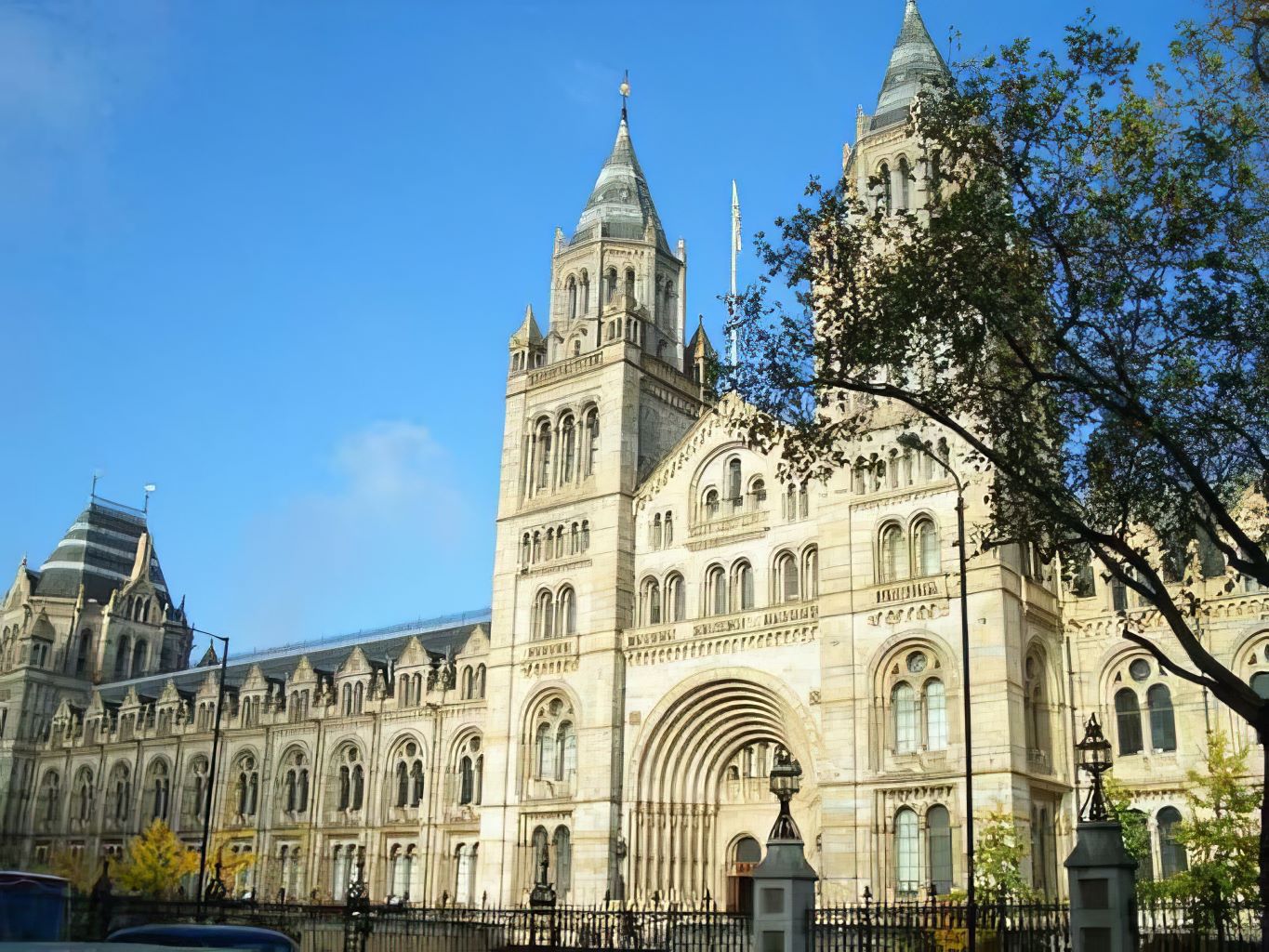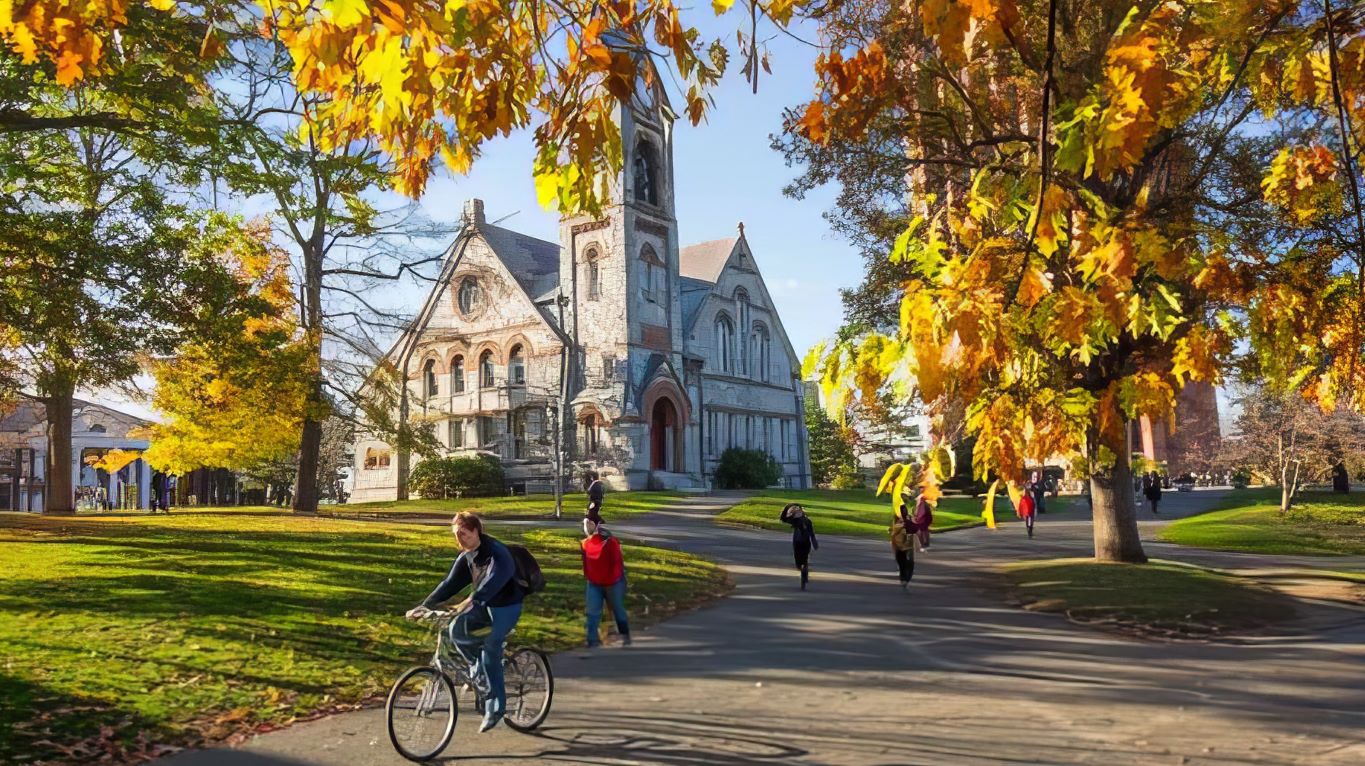Imperial College London stands as one of the world’s leading universities, known for its commitment to excellence in education, research, and innovation. Situated in the heart of London, this institution has garnered global recognition for its contributions to science, engineering, medicine, and business. In this comprehensive guide, we will delve into every aspect of Imperial College London, exploring its rich history, academic prowess, campus life, admission process, scholarships, challenges, and much more.
University Overview
Founded in 1907, Imperial College London emerged from the merger of three iconic institutions: the Royal College of Science, the Royal School of Mines, and the City and Guilds College. From its inception, Imperial has maintained a strong emphasis on scientific and technological advancement, fostering a culture of innovation that has produced numerous breakthroughs and Nobel laureates.
Today, Imperial College London encompasses a diverse range of disciplines across four main faculties: Engineering, Natural Sciences, Medicine, and Business. Its academic programs are renowned for their rigor and relevance, preparing students to tackle real-world challenges and make meaningful contributions to society.
The university’s central campus in South Kensington is a hub of activity, featuring state-of-the-art facilities, research centers, and iconic landmarks such as the Queen’s Tower and the Albert Memorial. Additionally, Imperial’s presence extends beyond London, with campuses in White City, Hammersmith, and Silwood Park, each specializing in different areas of research and education.
Campus Life
Life at Imperial College London is vibrant and dynamic, offering students a wealth of opportunities to engage with peers, pursue interests, and cultivate new skills. The university boasts a diverse and inclusive community, bringing together individuals from across the globe who share a passion for learning and discovery.
On-campus, students can immerse themselves in a wide array of extracurricular activities, from academic societies and sports clubs to cultural organizations and volunteering initiatives. The Student Union plays a central role in campus life, organizing events, advocating for student interests, and providing support services to enhance the student experience.
Moreover, Imperial’s central location in London provides students with unparalleled access to cultural, professional, and recreational opportunities. From world-class museums and theaters to thriving tech startups and multinational corporations, the city offers endless possibilities for exploration and enrichment.
Academic Excellence
At the core of Imperial College London’s reputation is its commitment to academic excellence and innovation. The university is consistently ranked among the top institutions globally for its research output, faculty expertise, and industry partnerships.
Imperial’s academic programs are characterized by their interdisciplinary approach, combining theoretical knowledge with practical application to address complex challenges in fields such as healthcare, energy, environment, and information technology. Students benefit from close interaction with leading researchers and industry professionals, gaining insights that extend beyond the classroom.
Furthermore, Imperial’s focus on entrepreneurship and innovation fosters a culture of creativity and problem-solving, empowering students to develop groundbreaking solutions and launch successful ventures. The university’s Enterprise Lab and Innovation Hub provide resources, mentorship, and funding to support aspiring entrepreneurs at every stage of their journey.
Admission Process
Admission to Imperial College London is highly competitive, with rigorous standards for academic achievement, intellectual potential, and personal qualities. Prospective students are evaluated based on their academic credentials, standardized test scores, personal statement, letters of recommendation, and extracurricular involvement.
The application process typically begins in the fall of the previous year, with deadlines varying by program and applicant type. International students may be required to demonstrate proficiency in English through standardized tests such as the TOEFL or IELTS.
In addition to academic qualifications, Imperial seeks students who demonstrate leadership, creativity, and a passion for their chosen field of study. Admissions decisions are made holistically, taking into account each applicant’s unique background, experiences, and aspirations.
Scholarships and Financial Aid
Imperial College London is committed to ensuring that talented students from all backgrounds have access to quality education, regardless of financial circumstances. The university offers a range of scholarships, grants, and bursaries to support students throughout their academic journey.
Merit-based scholarships are awarded to students who demonstrate exceptional academic achievement, leadership potential, or contributions to their community. Need-based financial aid is also available to help offset tuition costs, living expenses, and other educational expenses.
In addition to institutional scholarships, students may be eligible for external funding opportunities from government agencies, corporations, and nonprofit organizations. The university’s dedicated financial aid office provides guidance and support to students seeking assistance with funding their education.
Sports and Recreation
Imperial College London recognizes the importance of physical health and well-being in the overall student experience. The university offers a wide range of sports and recreational activities to cater to diverse interests and fitness levels.
From varsity teams competing at the highest levels to casual intramural leagues and fitness classes, there are opportunities for students of all abilities to stay active and engaged. Imperial’s state-of-the-art sports facilities include gyms, swimming pools, tennis courts, and playing fields, providing ample space for recreation and training.
Moreover, the university encourages participation in sports as a means of fostering teamwork, leadership, and resilience. Whether pursuing individual goals or representing Imperial on the global stage, student athletes benefit from a supportive community and world-class coaching staff.
Community Engagement
Community engagement lies at the heart of Imperial College London’s mission, reflecting its commitment to social responsibility and civic leadership. Through partnerships with local organizations, schools, and government agencies, the university seeks to address pressing challenges and create positive change in society.
Students are actively involved in community service initiatives, volunteering their time and expertise to make a difference in the lives of others. Whether through tutoring programs, environmental conservation projects, or healthcare outreach efforts, Imperial students are encouraged to apply their skills and knowledge to meaningful causes.
Furthermore, the university promotes diversity and inclusion through various initiatives and support services, ensuring that all members of the community feel valued and respected. By embracing differences and fostering dialogue, Imperial cultivates a culture of mutual understanding and collaboration.
Challenges and Solutions
Like any institution of its caliber, Imperial College London faces a range of challenges in fulfilling its mission and maintaining its position as a global leader in education and research. These challenges may include funding constraints, infrastructure limitations, and evolving societal needs.
To address these challenges, Imperial employs a strategic approach that emphasizes innovation, collaboration, and adaptability. The university continuously seeks to diversify its revenue streams, attract top talent, and invest in infrastructure upgrades to support its academic and research endeavors.
Moreover, Imperial actively engages with stakeholders, including government agencies, industry partners, alumni, and the broader community, to identify emerging trends and opportunities. By fostering strategic partnerships and leveraging its interdisciplinary expertise, the university is able to develop holistic solutions to complex problems.
Beyond Academics
While academic excellence is a hallmark of Imperial College London, the university offers much more than just coursework and research. Students have access to a wealth of resources and opportunities to explore their interests, develop new skills, and enrich their personal and professional lives.
Imperial’s thriving cultural scene includes a diverse array of student-led clubs and societies dedicated to various interests, from performing arts and music to entrepreneurship and social activism. Additionally, the university hosts a wide range of events, workshops, and guest lectures featuring prominent speakers and thought leaders from around the world.
Furthermore, Imperial encourages students to pursue internships, research placements, and study abroad opportunities to gain practical experience and broaden their horizons. The university’s global network of alumni and industry partners provides valuable connections and mentorship opportunities to support students in
their career aspirations.
Conclusion
Imperial College London stands as a beacon of excellence in higher education, combining academic rigor with real-world impact to address global challenges and shape the future. With its world-class faculty, state-of-the-art facilities, and vibrant community, the university offers a transformative experience that prepares students to thrive in a rapidly changing world.
Whether pursuing groundbreaking research, launching a startup, or making a difference in their communities, Imperial students are empowered to lead lives of purpose and significance. As the university continues to innovate and evolve, its legacy of excellence will endure, inspiring future generations to push the boundaries of knowledge and make a positive impact on the world.
FAQs
- What is the ranking of Imperial College London?
Imperial College London consistently ranks among the top universities globally, particularly in the fields of science, engineering, medicine, and business. It is often ranked within the top 10 or top 20 universities in various international rankings. - What is the admission rate at Imperial College London?
Admission to Imperial College London is highly competitive, with acceptance rates varying by program and applicant pool. Generally, the university admits a small percentage of applicants, reflecting its high academic standards and selectivity. - Are there opportunities for undergraduate research at Imperial?
Yes, Imperial College London offers numerous opportunities for undergraduate students to engage in research across various disciplines. Students can work alongside faculty members on cutting-edge projects, gaining valuable research experience and insights. - Does Imperial College London offer scholarships for international students?
Yes, Imperial College London offers scholarships and financial aid for both domestic and international students. These scholarships are awarded based on academic merit, financial need, and other criteria, and are designed to support students throughout their academic journey. - What is campus life like at Imperial College London?
Campus life at Imperial College London is dynamic and diverse, with a wide range of extracurricular activities, clubs, and events to suit every interest. Students have access to state-of-the-art facilities, world-class resources, and a supportive community that fosters personal and academic growth. - What support services are available for students at Imperial?
Imperial College London offers a comprehensive range of support services to help students succeed academically, professionally, and personally. These services include academic advising, career counseling, mental health support, disability services, and more. - What career opportunities are available to Imperial graduates?
Imperial College London graduates are highly sought after by employers worldwide, thanks to their rigorous education, practical experience, and problem-solving skills. Graduates go on to pursue careers in academia, industry, government, entrepreneurship, and various other sectors, making significant contributions to their fields. - Can students at Imperial College London participate in sports and recreation?
Yes, Imperial College London offers a variety of sports and recreational activities for students, ranging from varsity teams to intramural leagues and fitness classes. The university’s modern sports facilities provide ample opportunities for students to stay active, compete, and socialize. - What opportunities are there for international students at Imperial?
Imperial College London welcomes students from around the world and offers numerous opportunities for international students to thrive academically, culturally, and professionally. From cultural exchange programs to international internships and research collaborations, Imperial provides a supportive and inclusive environment for students of all backgrounds. - How does Imperial College London contribute to society?
Imperial College London is committed to making a positive impact on society through its education, research, and outreach efforts. The university’s faculty, students, and alumni are engaged in addressing pressing global challenges, from climate change and public health to technological innovation and social inequality. Through interdisciplinary collaboration and real-world application, Imperial strives to create knowledge and solutions that benefit humanity as a whole.

